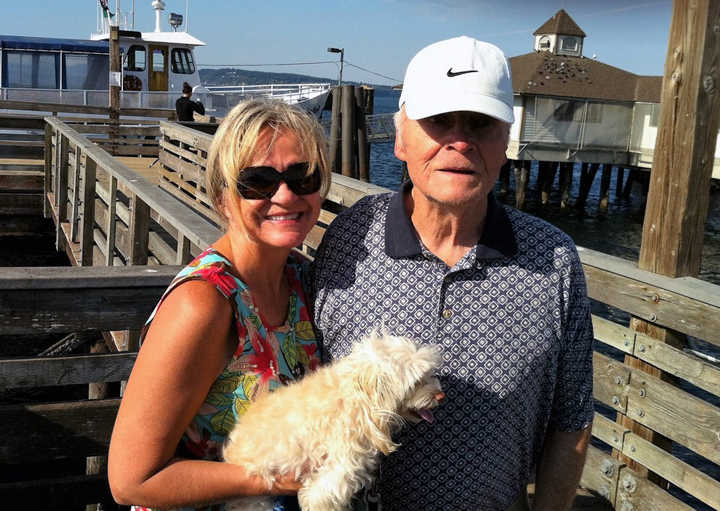My dad had a brilliant mind. A farm boy, he became the first person in all the generations of his family to earn a college degree. He was my primary inspiration for going to college and law school. A chief financial officer with the Department of the Army, he was especially good with numbers. He was my “go to” person for help with Algebra, and when I got older, with finances and investments.
Twelve years ago, my dad and I were tasked with getting pizzas for a family gathering. All the way to the pizza place, he was trying to figure out how many pizzas to order. We figured three slices per person for eight people. I posed a simple math problem: eight people multiplied by three slices equals 24 slices. Each pizza has eight slices so 24 divided by eight equals three pizzas. He argued with me and calculated out loud. He was way off base and kept getting confused. Frustrated, he gave up trying to figure it out. My dad, the math whiz? I was very concerned.
It soon became apparent that my dad was in the early stages of Alzheimer’s Disease. As the years passed, the disease robbed him of his independence, communication skills, personality, enjoyment of life, and the ability to recognize people or places. When he began to wander from home and have anger outbursts, we reluctantly decided to move him from my mom’s care to a memory care facility.
His last day at home was a tough one for my mom and me. I took him and his dog for a long walk to the harbor. A lifelong fisherman, he was happiest near the water. That night, my mom and I marked his name on his belongings and tried to not fall apart. Soon after the transition to memory care, he lost his physical health and needed a wheelchair and oxygen tank. We lost him in 2014.
Gov. Bill Walker has declared November as Alzheimer’s Disease Awareness Month. According to Alzheimer’s Resource of Alaska, approximately 6,000 Alaskans suffer from AD. There is no known cure but great strides have been made in understanding the disease and seeking a cure. Some of the warning signs are extreme memory loss, difficulty performing familiar tasks, struggling with language, disorientation, poor judgment, problems with abstract thinking, misplacing things, personality changes, loss of initiative and mood or behavioral changes.
Older age and genetics are two risk factors we cannot control but there are lifestyle changes that Alaskans can make to decrease chances of developing AD. The same strategies for improving heart health apply to AD. Obesity, high cholesterol and high blood pressure have all been linked to having a higher risk of getting AD. Regular physical exercise and a balanced diet with brain-healthy foods like salmon, halibut, berries, nuts, spinach and broccoli will keep our brains healthier as we age.
Alzheimer’s Disease is a difficult and expensive disease to manage, as it requires greater utilization of inpatient hospital care, skilled nursing facility stays and home health care visits. Nearly one in three seniors who dies each year has AD or a related dementia, making AD a public health priority in Alaska.
For those who have loved and cared for those with AD, you probably experienced some of the mysteries of the disease as our family did. Just when we thought our dad no longer had a clue who we were, out of the blue he would call one of us by name and say something profound. As I stood over his hospital bed during his final illness, I told him I loved him. Tears streamed down my face and my dad looked at me in that old familiar way that made me truly believe he knew it was me. His physical movements were extremely limited, but he haltingly raised his shaky hand to my face to wipe away my tears and then reached both arms around me and pulled me in for a hug.
This and other incidents made us believe that even when the disease is so progressed, those with AD may still have fleeting periods of awareness and cognizance. They should always be treated with patience, kindness, dignity and compassion, even when it seems like all lights have dimmed in their lives.
And let’s not forget those family members and caregivers who sacrifice much to provide around-the-clock care. It is often a thankless job and the challenges are great. But I hope all caregivers will know at least a moment as my mom did, when we thought my dad’s communication skills were gone. He held her and said, “For all of your life and the rest of your life, I love you.”
Alzheimer’s Disease Awareness Month is an opportunity to raise awareness about this growing public health concern, its symptoms and the importance of early detection so that Alaskans can connect with resources and services. Learn more at alzalaska.org.
• Donna Walker is First Lady of Alaska.

